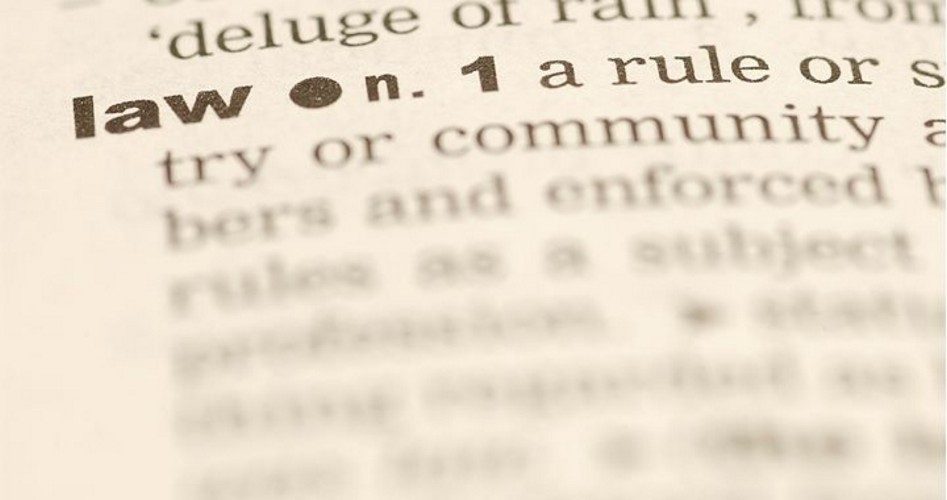
Starting with Texas, where Governor Greg Abbott signed a bill (Senate Bill 4) on May 7 banning sanctuary cities, at least 33 states have introduced immigration enforcement bills since Donald Trump assumed the presidency in January. With the Trump administration’s pursuit of much stricter immigration law enforcement than occurred under former president Obama, many states are eager to join the battle by passing laws requiring their cities and towns to cooperate with federal Immigration and Customs Enforcement (ICE) officials.
A May 25 report from the Washington, D.C.-based Migration Policy Institute noted that the Texas law, which takes effect on September 1, reflects the Trump administration’s immigration policies by penalizing so-called sanctuary jurisdictions that limit cooperation with federal immigration authorities.
The Migration Policy Institute report observed that the Texas law — in addition to requiring local cooperation with ICE officials — also allows state and local law-enforcement officers to inquire into the immigration status of noncitizens who are detained or arrested, as well as that of victims or witnesses to crimes. The report noted that three lawsuits involving the Texas law have been filed, and the legal parallels with Arizona’s SB 1070 (key provisions of which were struck down the Supreme Court in U.S. v. Arizona) mean the outcome and fallout of the Arizona law will be carefully examined in the lawsuits involving the Texas law.
A report in the Washington Examiner on June 1 cited data from the National Conference of State Legislatures (NCSL), which noted that as of May 8, 2017, 24 states were considering anti-sanctuary bills and four had passed such legislation during their 2017 legislative sessions. (That number was lower than was reported by the Migration Policy Institute on May 25.)
“Georgia and Indiana enacted laws restricting postsecondary institutions from adopting sanctuary policies. Mississippi went a step further, prohibiting local jurisdictions and postsecondary institutions from adopting or maintaining sanctuary policies,” said NCSL. The organization’s statement continued:
The outcome of challenges to the new wave of state activism is difficult to predict. First, there is an altered legal reality. The challenge to [Arizona’s] SB 1070 was brought by the Obama administration, a situation unlikely to occur in the Trump administration against states seeking to mandate compliance with ICE or toughen penalties against illegal immigration. As a result, it is likely that all challenges to such state laws will instead be brought by private parties and by some local jurisdictions. The legal battles are also occurring in a time when the political climate on immigration enforcement at the federal level — and in many states — has hardened. However, many courts have also shown resistance to upholding the President’s actions on immigration, which may influence at least some as they grapple with this latest set of state activity.
The “hardening” of the political climate on immigration was reflected in the voters’ election of Trump, since taking a tough stance on immigration was a key part of his campaign. Trump’s selection of former Alabama Senator Jeff Sessions — who was the Senate’s leading advocate of tougher immigration enforcement — as attorney general, indicated that the new president’s commitment to enforcing immigration law was more than just campaign rhetoric. Since a majority of the American public supported tougher immigration enforcement by their choice in the presidential election, it is natural that this sentiment would be reflected at the state level, as well. As the report stated, it has been mostly courts that have shown resistance to upholding the president’s actions on immigration. The challenges from “private parties” and “local jurisdictions” noted in the article, as one might expect, have come primarily from liberal activist groups and cities known for their liberalism.
We observed in our article for May 9, reporting about Abbott’s signing of Senate Bill 4 into law, that the law will make sheriffs, constables, police chiefs, and other local law-enforcement officials subject to Class A misdemeanor charges if they don’t cooperate with federal authorities and honor “detainer” requests from immigration agents to hold noncitizen inmates who are subject to deportation. The law also applies to police at Texas public colleges.
“Texas has now banned sanctuary cities in the Lone Star State,” Abbott said in a video of his signing posted on Facebook. Abbott defended the constitutionality of the law after signing it, saying key parts of it have “already been tested at the United States Supreme Court and approved there.”
Texas Senator Ted Cruz posted the following message on Facebook after the signing:
Governor Greg Abbott yesterday sent a clear message that defiance of our laws in Texas will no longer be tolerated.
I commend the Governor for signing into law this ban on sanctuary cities and the members of the Texas Legislature — especially Reps. Charlie Geren and Paul Workman and Senator Charles Perry — for their leadership in sponsoring this measure.
As we observed in our report on the passing of this strong immigration law in Texas, it will be interesting to see if this new legislation is the end of the matter, or (as has often been the case with similar laws and orders) it faces legal challenges in lawsuits such as those filed by activist organizations such as the Mexican American Legal Defense and Educational Fund (MALDEF) or rulings by liberal judges.
Related articles:
Texas: Gov. Abbott Bans Funds for Sanctuary Cities; Senate Bill to Demand Compliance with ICE
Judge Blocks “Sanctuary Cities” Defunding Order; Trump May Take Case to Supreme Court
Seattle Files Suit Against Trump Admin. to Preserve Sanctuary City Status
San Francisco Sues Trump to Stop Executive Order About Sanctuary Cities
California Advances Bills to Become Sanctuary State
Illegal Alien Sues San Francisco for Violating Sanctuary City Law
“Sanctuary Cities” Make a Mockery of Our Laws
DHS Issues Report Listing Jurisdictions Failing to Cooperate With ICE Detainers



